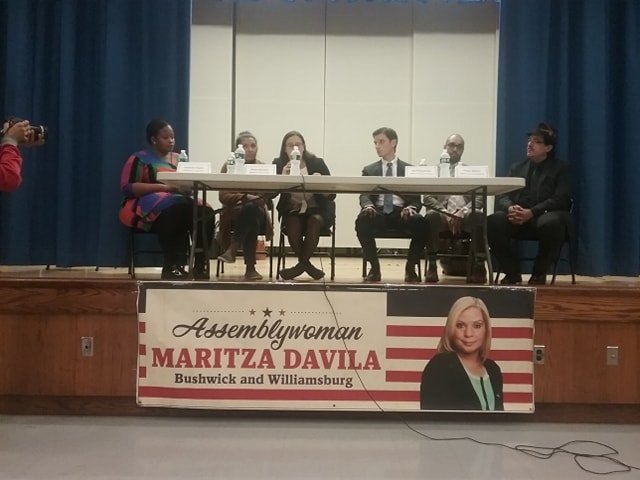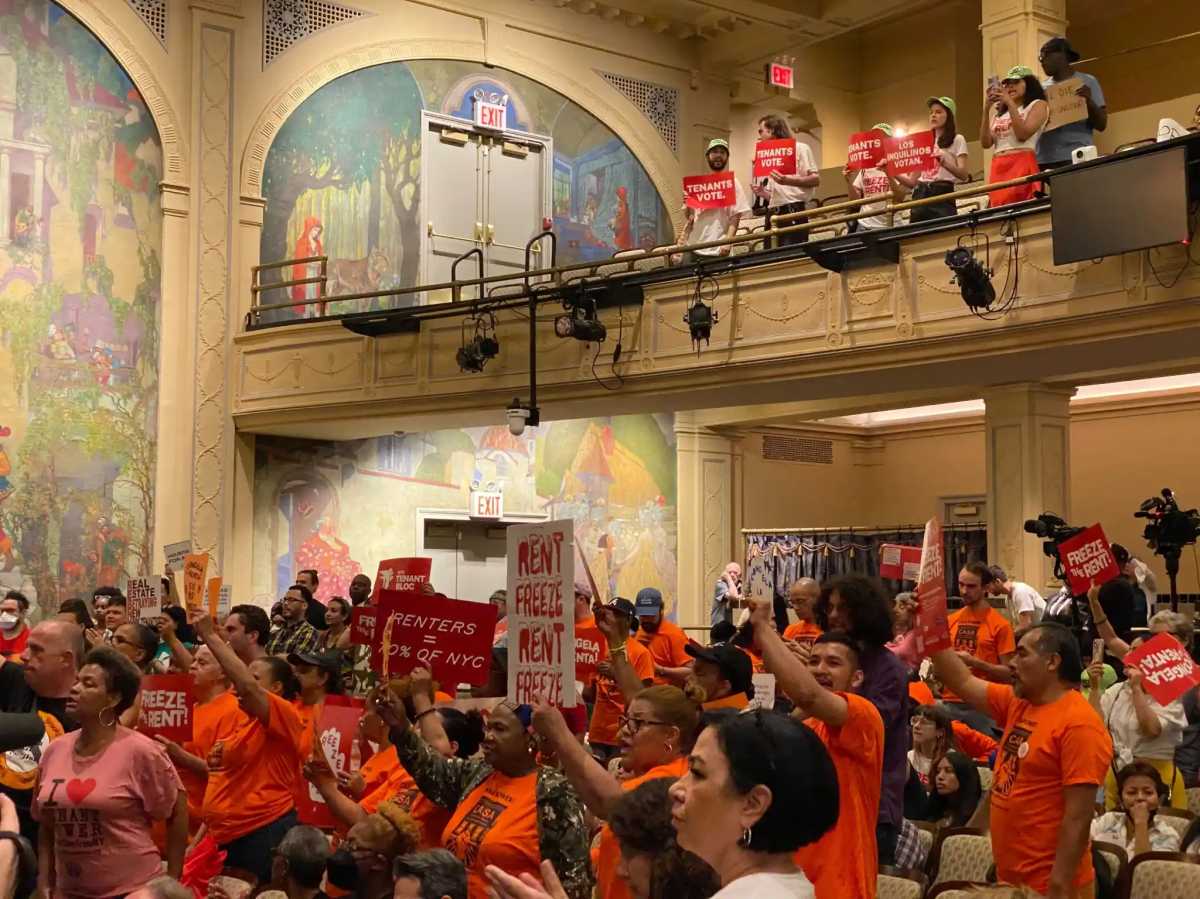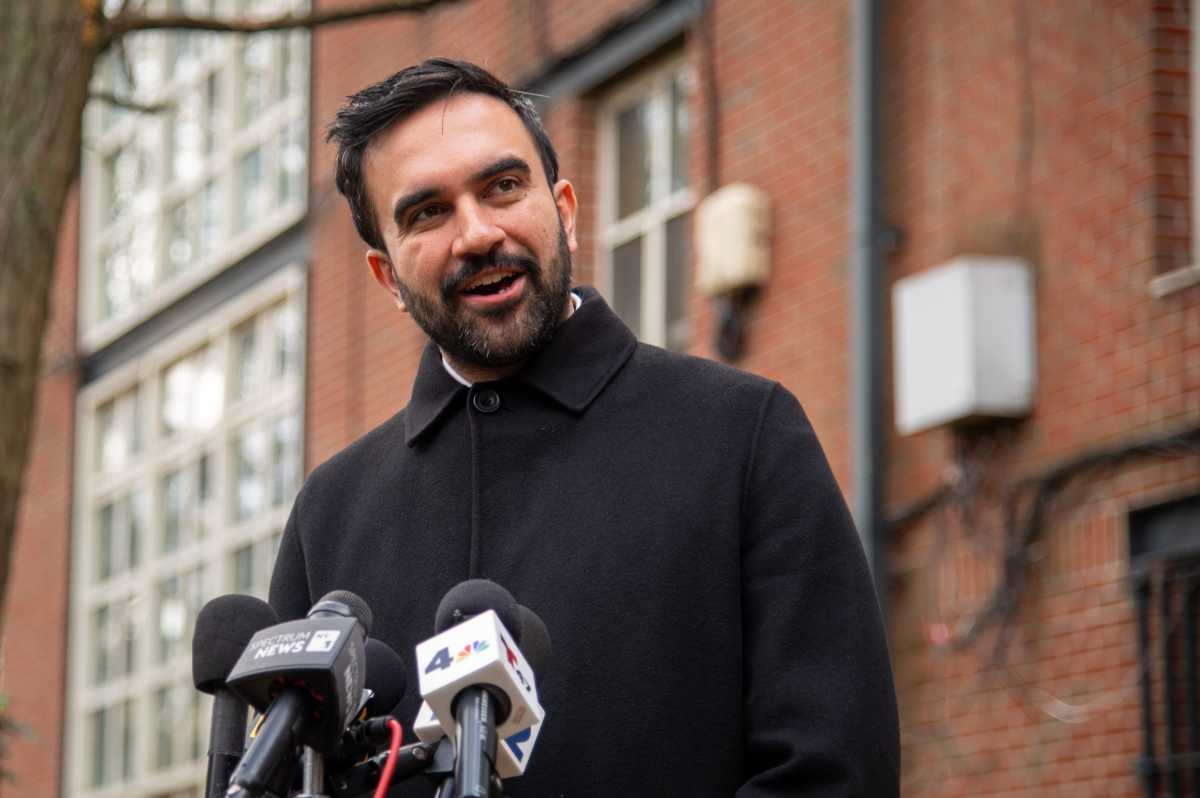Assemblywoman Martiza Davila (D-Bushwick, Williamsburg) hosted the well attended Know Your Rights Tenant Forum at the RiseBoro Youth Center on Gates Street in Bushwick on Wednesday.
The event boasted an informative panel of experts explaining the nine new housing laws that went into effect this past June to eager Bushwick and Williamsburg tenants.
In introducing the event, Davila set the tone by celebrating the progressive housing laws, noting that this was the first time in a decade and that it opened the gates for reforms that championed the rights of tenants over landlords.
“We were fortunate enough to have a Senate body that, finally, we could work with and that finally [sic] we could pass laws. It was a very, very special year this year. I can’t tell how happy I am about working with my counterparts in the State Senate across the aisle,” Davila said.

She also tied the passage of reforms with the upcoming census and the next year of elections. In doing so, she touched on Brooklyn gentrification and the Latino populations in her district. It should be noted that most of her introduction and all of the rest of the event was translated into Spanish and English to accommodate the large Latino population in her district.
“Bushwick and Williamsburg, okay. We see a lot of gentrification. We’re feeling the gentrification. But let’s not get that twisted, as we say in Bushwick… In the past census, in 2010, Bushwick had nine percent Latinos. Now, we’ve surpassed that, which means Latinos are coming back to Bushwick and Williamsburg.” she explained.
Davila then turned her speech towards President Trump, who she condemned for his hateful rhetoric, and encouraged everyone to participate in the census before talking about how New York is a sanctuary state and offered protection to immigrants.
“And we all know that we have a special person in the White House… that all he’s doing is spreading biased hateful messages throughout the entire world. But I have to tell you, this year coming 2020 is going to be the year. We’re not going to let that happen again, are we? So we need you to tell your friends and neighbors to get counted.”
Davila then went on to introduce the panel of experts, which included two members from the group Mobilization for Justice (MFJ) and RiseBoro Community Partnership. Both groups handled the legal side of housing, and were there to answer questions from the constituents. From MFJ, there were two members, Cassandra Charles and Ariana Marmosa. From RiseBoro Community Partnership, there was Daniel Rosenstock and Puneet Sharma.
The overarching theme of the panel was the expansion of rights that the nine new housing laws gave to tenants. Charles and Marmosa focused on the rights of tenants to fight back against unlawful rent increases, and described what was different about the Major Capital Improvement (MCI) and Individual Apartment Improvement (IAI) rent increases under the new laws. These describe the various modifications that landlords have been making to apartments, which have been used in the past to justify major rent increases to unsuspecting tenants and driving them from their housing.
Under the new laws, these rent increases have been curtailed, and landlords are now forced to ask for consent from tenants for improvements that would lead to rent increases. Additionally, landlords are now only limited to only $15,000 worth of improvements over a 15-year period.
Rosenstock and Sharma focused on rent stabilization, its definition, how to find out if a tenant’s apartment is rent-stabilized, and how to deal with landlord harassment. In Rosenstock’s explanation, he outlined the difference between preferential and legal rent and how that is displayed on your rider and lease renewals, and what rights you have as a tenant of a rent-stabilized apartment.
Sharma handled landlord harassment and unfair denial of tenant applications. He said that the new laws make it illegal for landlords to blacklist tenant candidates and makes it more difficult for landlords to acquire tenant housing court history and deny applications based on housing court histories.
Following the panel discussion, the floor was opened up to questions from concerned tenants who asked about late fees, clarifications about riders and leases, and asked for direction on apartments that were not rent-stabilized.










